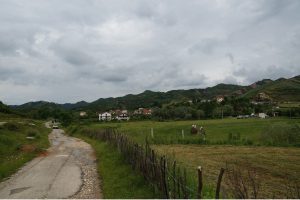By: Firdevs Okatan
Impunity Watch Staff Writer
STRASBOURG, France – On November 7, 2023, the European Court of Human Rights (ECHR) reached a decision in the case of Durham and Others v Albania, addressing the adequacy of the investigation into a devastating explosion at the Gërdec weapon decommissioning facility in Albania.
 |
On March 15, 2008, a massive explosion occurred at the Gërdec facility, resulting in 26 fatalities and around 300 injuries. Some of the applicants to the court had family members injured or killed in the explosion, while others were themselves severely injured as they were working at the facility. Investigations revealed numerous safety violations, including the absence of required licenses, inadequate training, and violations of military regulations.
Indictments were filed against 29 individuals, including a former Minister of Defence, but the prosecution against the former minister was discontinued due to parliamentary immunity. Civil claims were lodged by some applicants against the accused, which were separated from the criminal proceedings. The applicants argued that this separation deprived them of participation in the criminal trial, violating the principle of adversarial proceedings.
Ultimately, 24 of the accused were found guilty of various criminal offenses related to the Gërdec incident. However, some sentences were reduced, and the applicants were left without a final conclusion regarding the responsibility of the former Minister of Defence.
The ECHR concluded that the investigation was generally adequate in establishing the circumstances and identifying those responsible for the incident. However, it found a violation of the procedural aspect of Article 2 of the Convention, as the applicants were denied effective participation in the criminal proceedings.
Regarding the substantive aspect of Article 2, the Court found that applicants who had accepted compensation had renounced further use of national remedies, while those who had not pursued civil claims had not exhausted all available legal avenues.
The Court ordered Albania to pay compensation to the applicants for non-pecuniary damage and costs and expenses.
For further information, please see:
ECHR – Durdaj and Others v. Albania – 7 Nov. 2023
ECHR – Judgment concerning Albania – 7 Nov. 2023
European Convention on Human Rights – 1950



